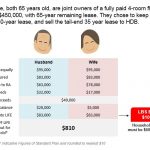Mortgage service ratios of HDB housing loans have been stable at around 20% for new flat purchases, and 25% for resale flat purchases
Minister for National Development, Lawrence Wong, said in Parliament on Oct 7 that mortgage service ratios of HDB housing loans have been stable. The Minister was responding to a parliamentary question by Non-Constituency Member of Parliament Leon Perera.
Mr Perera asked, “in each of the last five years, what has been the mean and median mortgage service ratio (MSR) for those servicing mortgage loans for only a single HDB flat; and how many HDB lessees have been allowed to exceed the MSR ceiling, if any.”
In responding to Mr Perera, Mr Wong said that mortgage service ratios of HDB housing loans have been stable.
Table of Contents
“Between 2014 and 2018, the mean and median mortgage service ratios (MSRs) of HDB housing loans disbursed at key collection were similar – these ratios have been stable at around 20% for new flat purchases, and 25% for resale flat purchases. As flat buyers are required to dispose of any existing property after they collect the keys to their flat, they will be servicing an HDB housing loan for a single flat.
The Mortgage Servicing Ratio (MSR) cap of 30% of flat buyers’ income is one of the criteria used to determine the maximum loan amount that flat buyers are eligible for when they apply for a housing loan to purchase an HDB flat or executive condominium.
However, some flat buyers choose to shorten their loan tenure to minimise interest costs. For a small number of such flat buyers (around 3% of those who collected keys to their HDB flats in 2018), while their approved loan amount adheres to the MSR cap over the maximum applicable loan tenure, their mortgage instalment over the shortened loan tenure may exceed 30% of their monthly income.”
Mortgage servicing ratios (MSR) refers to the portion of a borrower’s gross monthly income that goes towards repaying all property loans, including the loan being applied for. MSR is capped at 30% of a borrower’s gross monthly income. It applies only to housing loans for the purchase of an HDB flat or an executive condominium bought directly from a developer.
When calculating Mortgage Service Ratios, financial institutions are to take into consideration:
- All the borrower’s property loans.
- At least 20% of the monthly debt obligation for any property loan where the borrower is a guarantor.
To calculate a borrower’s Mortgage Service Ratios, financial institutions have to use the following formula:
(Monthly repayment instalments for all property loans / Gross monthly Income) x 100% ≤ 30%
 If you are purchasing a HDB flat, banks also have to calculate your Mortgage Servicing Ratio. MSR is capped at 30% of all borrowers’ gross monthly income. Calculation of MSR is based on loan amount and combined monthly gross income.Your maximum home loan amount is determined by Total Debt Servicing Ratio (TDSR), MSR, loan tenure and a medium-term 3.5% interest rate.
If you are purchasing a HDB flat, banks also have to calculate your Mortgage Servicing Ratio. MSR is capped at 30% of all borrowers’ gross monthly income. Calculation of MSR is based on loan amount and combined monthly gross income.Your maximum home loan amount is determined by Total Debt Servicing Ratio (TDSR), MSR, loan tenure and a medium-term 3.5% interest rate.
Total Debt Servicing Ratio, is a relatively new regulation in Singapore’s real estate market. Introduced only on 28 June 2013 after seven rounds of property cooling measures had been implemented since 14 September 2009, nonetheless the Government did not regard it as yet another series of cooling measure. Rather it was hailed as long-term measure to ensure that financial institutions practise prudence when disbursing property loans.
Table 1: Comparing MSR And TDSR
|
MSR |
TDSR |
|
The monthly repayment of a mortgage do not exceed 30% of the borrower’s gross income |
All monthly debt obligations, inclusive of the mortgage repayment, do not exceed 60% of the borrower’s gross monthly income |
|
Applies to all mortgages, whether by FIs or HDB, granted for the purchase of a HDB flat or an EC |
Applies to all property loans, whether residential properties or otherwise, granted by FIs Hence HDB concessionary loans are exempted from it |
|
When computing the MSR, the FI has to use a specified medium-term rate (3.5%), or the existing market rate, whichever is higher. For the HDB concessionary loan, the rate to be used is the prevailing rate of the loan which has remained at 2.60% p.a. since July 1999. |
When computing the TDSR, the FI has to use a specified medium-term rate, or the existing market rate, whichever is higher. The specified rate:
|
|
For refinancing, the MSR will not apply to loans for HDB flats and ECs that are
|
For refinancing, the TDSR will not apply if
|
Source: HDB, MAS, MND
Mr Paul Ho, chief mortgage consultant at iCompareLoan, said, “because many restrictions like MSR and TDSR come into play when someone needs a housing loan, HDB flat buyers should use calculators to find out how much they can borrow.”
He added, “if they are not taking HDB loan and are going for bank loans, they should also consult with mortgage consultants, who will be able to advise them on the size of loan they are eligible for.”
With the imposition of the Total Debt Servicing Ratio (TDSR) on top of the existing Mortgage Servicing Ratio (MSR), getting approval for a home to buy a property becomes a nightmare. Calculations are tedious.
“Property Buyers — “I don’t know how much I can borrow. Let’s wait. This is way too risky.”
Agents — “This is getting way too complicated for me. I feel so helpless, I can’t help my buyers without bankers.
Sigh, another Property Buyer slip away.””
Mortgage brokers are specialists who are well versed with the banking loan process and have access to hundreds of mortgage and loan packages across many banks. Mortgage brokers help property buyers to get the best home loans and home owners to refinance home loans.
The mortgage broker is typically an experienced professional who is familiar with the loan approval process, and having worked with different banks, they know their criteria and what makes the cut. As they are independent, they will also be able to tell you which lender offers the most suitable loan package rather than selling the loan package from the financial institution they represent.
A mortgage broker can help you assess your MSR and TDSR Affordability
1. Access your financial risk profile and advise on a suitable loan package, saving you the hassle of:
- running around;
- going to a bank that does not offer a loan for your housing type or your personal profile;
- not knowing what documents are needed;
- having to make 5-10 loan application and even;
- the possibility of impacting the process of your home purchase.






